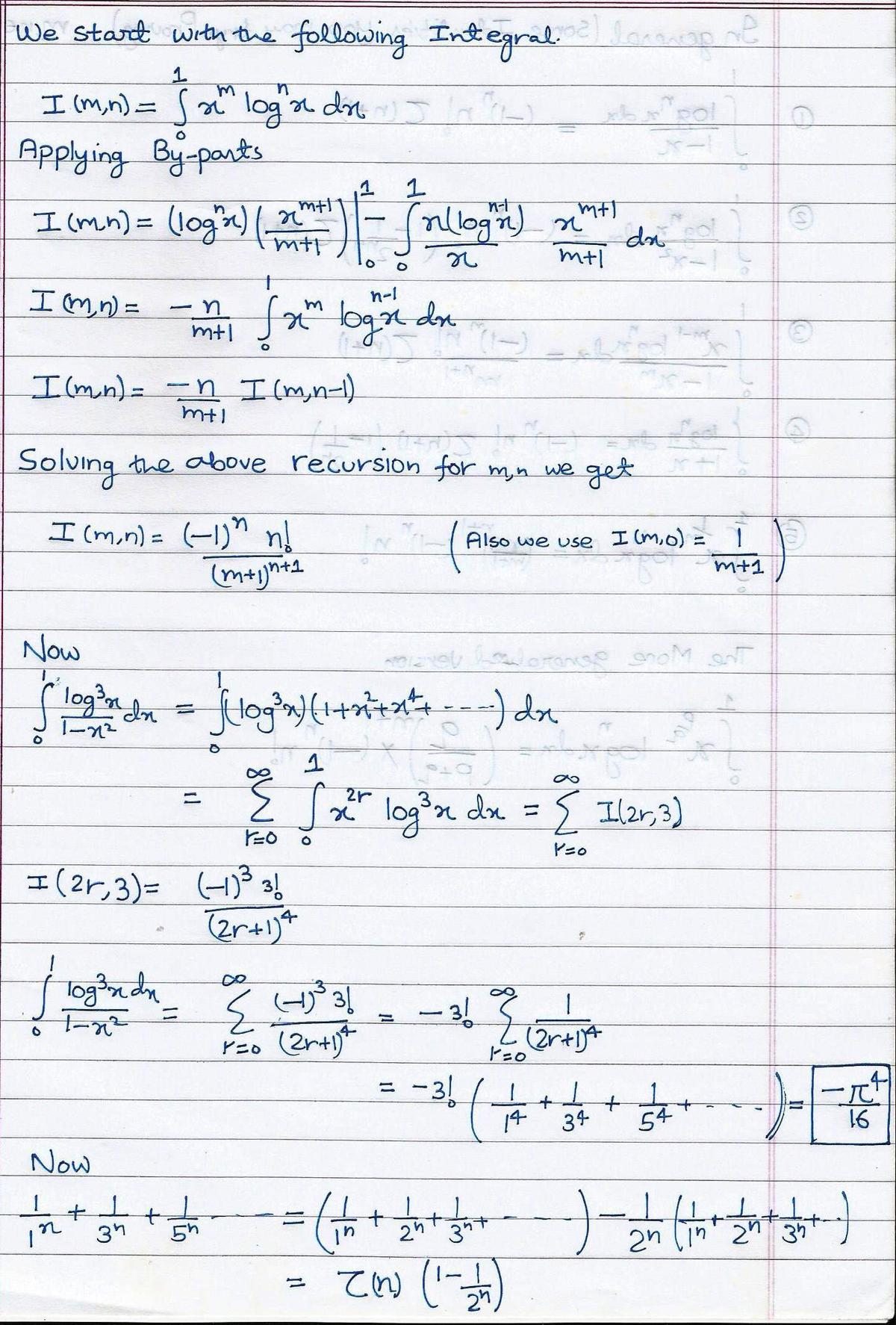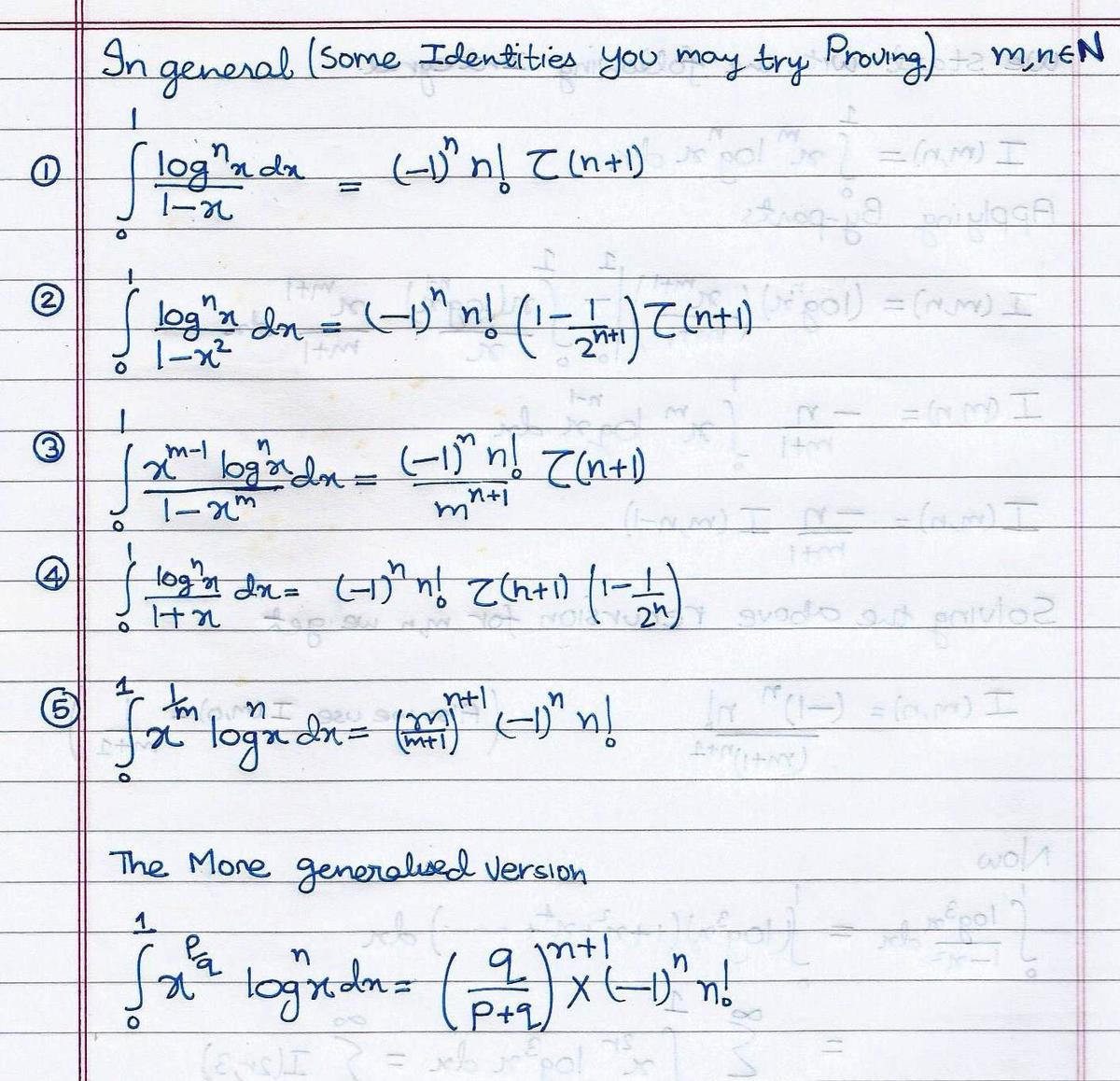Off the charts!
∫ 0 1 x 2 − 1 ( ln x ) 3 d x
If the integral above is equal to 2 B π A , where A and B are integers, find the value of A + B .
The answer is 8.
This section requires Javascript.
You are seeing this because something didn't load right. We suggest you, (a) try
refreshing the page, (b) enabling javascript if it is disabled on your browser and,
finally, (c)
loading the
non-javascript version of this page
. We're sorry about the hassle.
2 solutions


Hmm.. Nice
Sir, would you happen to know any good links from which I could learn more on solving multivariable recurrences?
let I = ∫ 0 1 x 2 − 1 ( ln x ) 3 d x put x = e − u ⇒ I = ∫ 0 ∞ 1 − e − 2 u u 3 e − u d u 1 − e − 2 u 1 = k = 0 ∑ ∞ e − 2 k x sum geometric series ⇒ I = ∫ 0 ∞ k = 0 ∑ ∞ u 3 e − u e − 2 k u d u = k = 0 ∑ ∞ ∫ 0 ∞ u 3 e − u ( 2 k + 1 ) d u put u = ( 2 k + 1 ) t ⇒ I = k = 0 ∑ ∞ ( 2 k + 1 ) 4 1 ∫ 0 ∞ t 3 e − t d u = k = 0 ∑ ∞ ( 2 k + 1 ) 4 Γ ( 4 ) = 3 ! k = 0 ∑ ∞ ( ( 2 k + 1 ) 4 1 + ( 2 k + 2 ) 4 1 − ( 2 k + 2 ) 4 1 ) ⇒ I = 6 ( k = 1 ∑ ∞ k 4 1 − k = 1 ∑ ∞ 1 6 k 4 1 ) = 6 ⋅ ζ ( 4 ) ⋅ ( 1 − 1 6 1 ) = 6 ⋅ 9 0 π 4 ⋅ 1 6 1 5 = 1 6 π 4 = 2 4 π 4 note that ζ ( 4 ) = 9 0 π 4